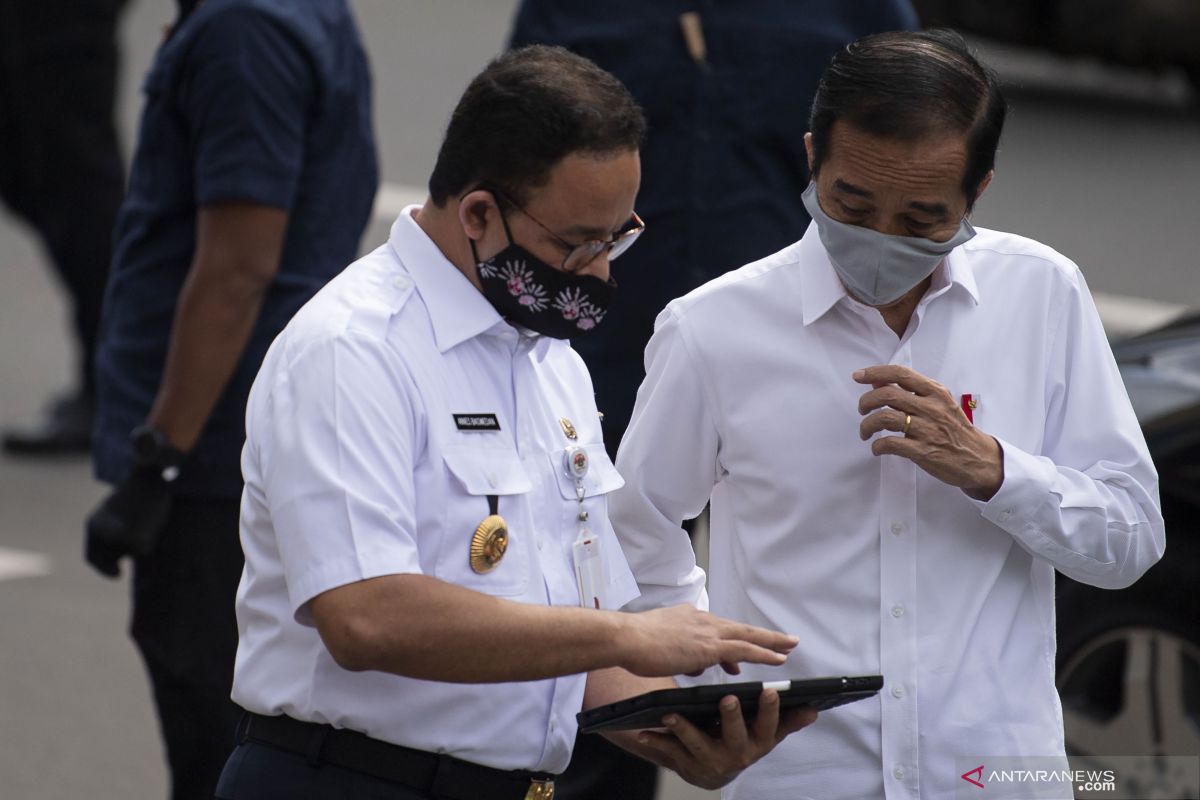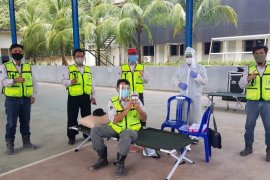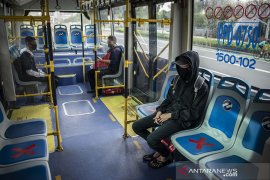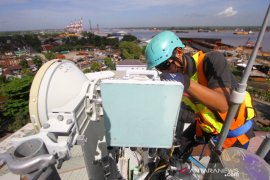Jakarta (ANTARA) - Health protocols laid down for workplaces, as part of the ‘new normal’, include ensuring employees are not over-exhausted, to help maintain immunity levels of workers and protect them from COVID-19 infection, the Ministry of Health said.
The health protocols, that would allow businesses to carry on their activities, also encourage workplaces to drop the shift system for workers. Provisions regarding the regulation of shorter working hours are stipulated in the Minister of Health Decree number HK.01.07 / MENKES / 328/2020 concerning Guidelines for the Prevention and Control of COVID-19 in Office and Industrial Workplaces in Support of Business Sustainability in Pandemic Situations, released in Jakarta on Tuesday.
The decree can be accessed through the link http://sehatnegeriku.kemkes.go.id/baca/rilis-media/20200523/5133951/pencegahan-covid-19-tempat-kerja-era-new-normal/.
In the decree, the minister has also recommended that workplaces remove the third shift in their system, which begins at night and ends the next morning, if possible.
However, if offices still require a third shift, then, to help reduce the risks, the system would need to be regulated so that those working the shift are mainly under 50 years of age .
The regulation stipulates that company managements establish policies on preventing COVID-19 transmission. The regulation requires managements to continuously monitor and update the development of information about COVID-19 in their area.
Company managements are also required to form a COVID-19 handling team in the workplace, comprising leaders, human resources department, Occupational Health and Safety, and health workers. The teams need to be strengthened by a decree from the leaders in the workplace.
Employers also need to lay down policies and procedures for workers to report suspected COVID-19 cases by scrutinizing the symptoms, and then referring them to health workers for observation.
Stigmatizing those who have tested positive for the virus has been strictly prohibited, and the government has suggested a work-from-home scheme.
Companies would be required to determine which essential workers need to keep coming to the office to work, and which ones can work from home.
Essential workers who must continue to work at the office during the implementation of large-scale social restrictions (PSBB) would need to have their body temperatures scanned at the entrance using a thermo gun, and before entering work, they would have to conduct a COVID-19 Risk Self-Assessment. This would ensure workers who come to work do not transmit the novel coronavirus.
In addition, working hours need to also be regulated in such a way that they are not too long, or there is no overtime, in order to ensure that workers have enough time to rest and maintain their immune levels.
Workers are also required to wear masks as they leave their homes or offices, as well as at work.
In addition, companies have to regulate the nutritional value of food provided by the workplace by choosing fruits that have a high Vitamin C content, such as oranges and guavas, to help maintain endurance. If possible, workers can be given Vitamin C supplements.
Companies are also required to provide a safe and healthy workplace, as well as a clean environment. Managements need to ensure that all work areas are clean and hygienic by periodically cleaning them using appropriate cleaners and disinfectants every four hours, especially objects that are frequently touched, such as door handles and stairs, elevator buttons, shared office equipment, areas, and other public facilities.
They are also obliged to maintain workplace air quality by optimizing air circulation and sunlight exposure, as well as cleaning air conditioner filters.
More hand-washing facilities are also required, complete with running water and soap. There should also be signs to point workers to these facilities, as well as educative posters on how to wash hands properly. Hand sanitizers with a minimum of 70 percent alcohol content would also be required in certain places, including entrance doors, meeting rooms, and elevator doors.
Every worker who comes to the office needs to also practice physical distancing in all work activities. The distance between workers should be set to at least one meter in each work area, such as between work desks, chairs, and at canteens.
Companies are required to provide intensive education to employees regarding clean and healthy living behaviors, as well as appropriate information on recognizing and understanding the novel coronavirus disease and its treatment.
Related news: New normal is retaining productivity, following health protocol
Related news: Tourism industry to apply health protocol in "new normal" era
Related news: Jokowi upbeat about continued flattening of COVID-19 curve
Related news: Heavy deployment of TNI, police to discipline public during PSBB










